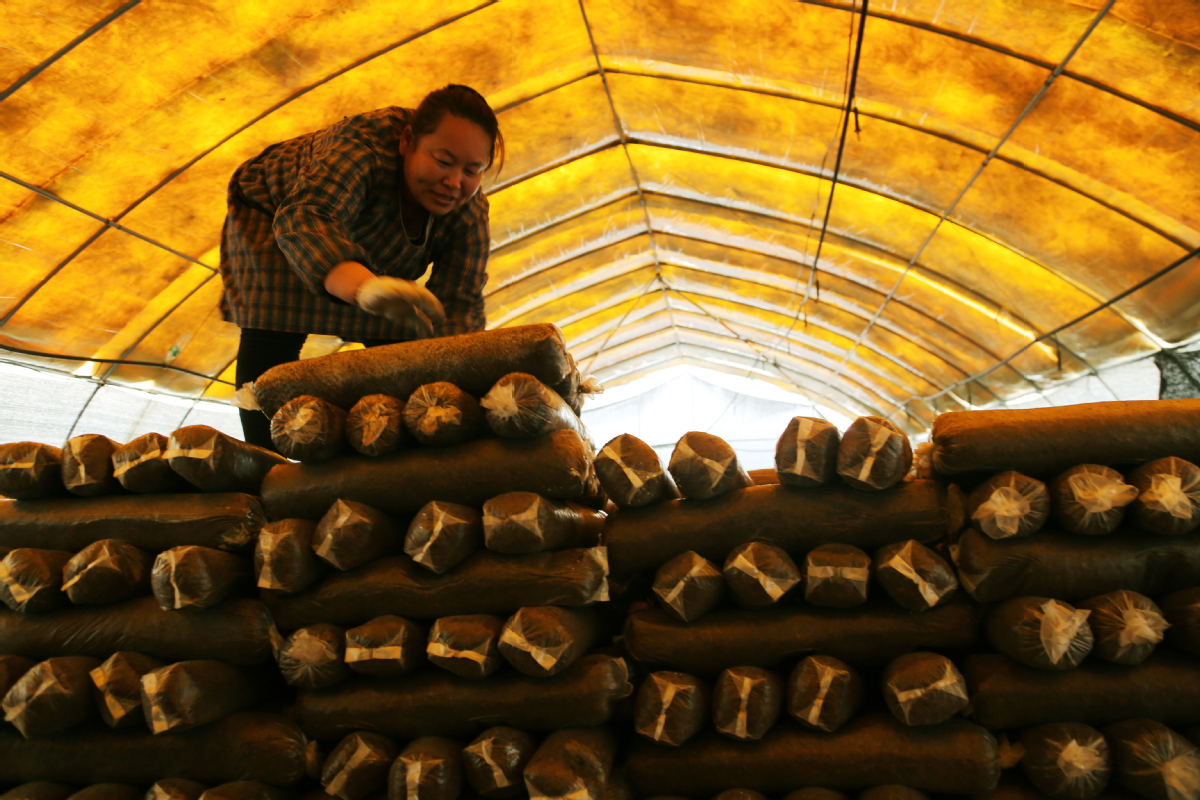Mountain village casts off poverty


Biggest bottleneck
"The biggest bottleneck was we had no pillar industries and no leading companies," said Liu Jing, Party secretary of the county.
In 2014, when a nationwide campaign was conducted to register all the poor households below the national poverty line-those with an annual per capita income of 2,736 yuan ($392)-more than 100,000 residents of Fuping were classified as poor, accounting for more than half of its population.
After the campaign examined the reasons behind their poor living conditions, the government devised a poverty alleviation program for them.
The information about their living conditions was recorded in a file, which was handed to each targeted household.
Wen's family too received one. She and her family-husband, two children and her husband's elder brother-used to live in a 50-square-meter hovel built in 1975.
"The walls were made from clay and the roof leaked every time it rained," she said.
The family's main sources of income were corn and potatoes that they grew on barren land. "To buy daily necessities, we had to walk more than 10 kilometers to a village."
The village had a primary school where her children studied.
Wen, who is from Santai, a county in Sichuan province, got married in 1994. "I never thought the conditions would be so bad," Wen said.
She recalled that once a young villager had brought them a flashlight, but his parents didn't know how to switch it off. They put it in water thinking that it could be put out like fire.
When her husband was incapacitated by cerebral hemorrhage in 2010, the entire family responsibility fell on Wen.
Fewer industries and limited transport facilities had led to poverty and backwardness in the county.
President Xi Jinping, who is also the general secretary of the CPC Central Committee, visited two impoverished villages in the county toward the end of 2012.
Xi visited the villagers' homes in Luotuowan and Gujiatai in Longquanguan town.
During his visit, Xi said local Party and government authorities should place more emphasis on helping people out of poverty, especially those in the impoverished regions.























